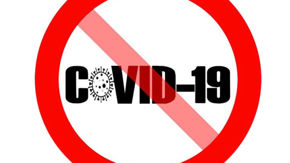5 mins read
Some people are inherently gifted with certain abilities, while others must work hard to cultivate them. Being able to think critically is one such skill. However, critical thinking itself is made up of a variety of abilities — both hard and soft skills — that help in problem-solving. So what is critical thinking exactly? Read on.
What is Critical Thinking
Critical thinking is the process of questioning, analyzing, interpreting, evaluating, and forming an opinion about what you read, hear, say, or write. The term ‘critical’ originates from the Greek word kritikos, which means ‘ability to judge or distinguish’. Making trustworthy decisions based on accurate information is what critical thinking is all about. It is built on universal intellectual ideals: clarity, correctness, precision, consistency, relevance, sound evidence, excellent reasoning, depth, and fairness. As a result, employers place a premium on the capacity to think critically.
Why is Critical Thinking Important
We’ve now got clarity on the question of what is critical thinking. Let’s now understand why it is important.
Some Occupations Demand it
Critical thinking is a crucial aspect of any career where the goal is to objectively infer facts without bias, examine the context, solve creative challenges, and come up with practical answers.
It Improves Decision-Making
Big life-changing decisions, such as whether to change careers or not, benefit from critical thinking. It motivates you to investigate and choose objective reasoning over your immediate emotional reaction.
Critical Thinkers are More Content
Every difficult situation can be further simplified if one has the ability to think critically. Critical thinking invokes a sense of introspection which hones personal growth and amplifies general satisfaction.
Keeps You Well-Informed
Critical thinkers excel at researching and locating the most significant pieces of information that make them well-informed on any given issue. This is useful in workplace interactions and in establishing oneself as an industry thought leader.
Helps in Self-Reflection
Critical thinkers are more self-reflective and can modify their views and attitudes in light of new facts because they deflect the impulse to defend their personal convictions.
Types of Critical Thinking
There are three main types of critical thinking: analysis, inference, and evaluation.
Analysis
- Recognizing what is being said
- Differentiating the relevant from the irrelevant
- Connecting various lines of thinking
Inference
- Identifying what is being communicated (and what isn’t)
- Taking someone’s actions as instances of attributes, intentions, or expressions
- Idea extraction
- Using analogies to draw conclusions
- Understanding cause-and-effect relationships
Evaluation
- Reasoning for decisions
- Determining the worth, trustworthiness, or power of an argument
- Understanding the importance or value of information
Critical Thinking Skills: A Real-Life Example
So, what is critical thinking when it comes to real-world situations? It’s asking yourself these kinds of questions: Should you go to college, or should you enroll in an online course? Should you be working part-time? Should you aim to work for a startup, non-profit, or for-profit organization? Each of these solutions has advantages and disadvantages. For instance, it takes time to decide on a profession. We must develop an argument for each possible alternative and evaluate the economical, social, and professional contexts. We must ask ourselves why this is the best option for us. After making a decision, we must endeavor to forecast the consequences of that action one, five, and 10 years in the future, And that’s before we eventually reach a moment where we can determine whether to change careers.
The Process of Thinking Critically
Here are 6 steps to understand the process and give us clarity on what critical thinking is:
Interpretation
In order to explain the problem or scenario and ensure that all team members are on the same page:
- Think about the 5 W’s—who, what, when, why, where—and the H, how.
- What is going on?
- Who are the individuals involved?
- Who owns or has a significant investment in the process of making a decision?
- What is the best method to describe or categorize this?
Once everyone in the team feels that they have understood the problems deeply, they are ready to move on to analysis.
Analysis
To discuss the issue further, explore the intended and actual relationships among the statements and the questions from the team members. Consider each individual’s viewpoint, beliefs, and assumptions. Examine the facts and any metrics available to back up the information.
- What is your reasoning for making that assertion?
- What is your conclusion?
- What exactly are you claiming?
- Why do you believe that?
- What are the arguments (both pro and con)?
Once everyone on the team feels that they have explored the questions thoroughly, they are ready to move on to inference.
Inference
To locate and collect the components required to arrive at logical conclusions, the team will have to use the information from the analysis phase, including the facts, assertions, guidelines, arguments, convictions, and views, to generate ideas. This is the time to list potential solutions and talk about the practicality of each one.
- What inferences are we able to draw based on what we now know?
- What can we rule out in light of what we now know?
- What is implied by this evidence?
- What would happen if we rejected or adopted that presumption?
- Are there any negative effects that we may and should anticipate?
Once everyone on the team feels like they have explored all the data, and questions, they can move to the evaluation stage.
Evaluation
This means evaluating the validity of the conclusions reached during the inference phase and to examine any fresh information and concepts developed since the last session. Examine the viability of potential ideas with new eyes and look for logical and cognitive flaws.
- How reliable is the assertion?
- How persuasive are the claims made by team members?
- Do we have accurate information?
- How certain can we be about our conclusion in light of what we know now?
- What would it look like if we put this solution in place within a year?
Explanation
Explain the steps the team took to come up with the answers. Setting the mental process in context helps to understand how it developed.
- What were the investigation’s precise findings or outcomes?
- How did you go about doing the analysis?
- How did you arrive at that conclusion?
- Why do you believe that was the appropriate response or a workable solution?
- How would you describe the reasoning behind this specific choice?
Self-Regulation
Carefully examine assumptions and assess any biases the team may have. In order to challenge, confirm, validate, or link one’s reasoning or outcomes, evaluate the team’s inferential judgments.
- How effective was our technique, and how closely did we adhere to it?
- Is it possible to reconcile these two seemingly incompatible conclusions?
- How strong is our proof?
- What are we missing before we commit to this solution?
- Can we revisit some definitions before we make any final class?
Critical Thinking Dispositions
Critical thinking disposition is a quality or mental practice that is incorporated into one’s beliefs or behaviors in order to solve issues and make decisions effectively.
Here are 12 dispositions for critical thinking:
- Inquisitiveness
- Open-mindedness
- Self-efficacy
- Attentiveness
- Goal-oriented internalization
- Perseverance
- Organization
- Truth-seeking
- Creativity
- Skepticism
- Reflection
- Resourcefulness
How to Improve Critical Thinking Skills?
Improving critical thinking skills is crucial. Here’s how you can do it in a few steps:
- Becoming self-aware
- Understanding your own mental process
- Developing foresight
- Practicing active listening
- Asking questions
- Evaluating existing evidence
Critical thinking is mostly considered a soft skill that can help you advance your career. But there are technical aspects to it as well.













